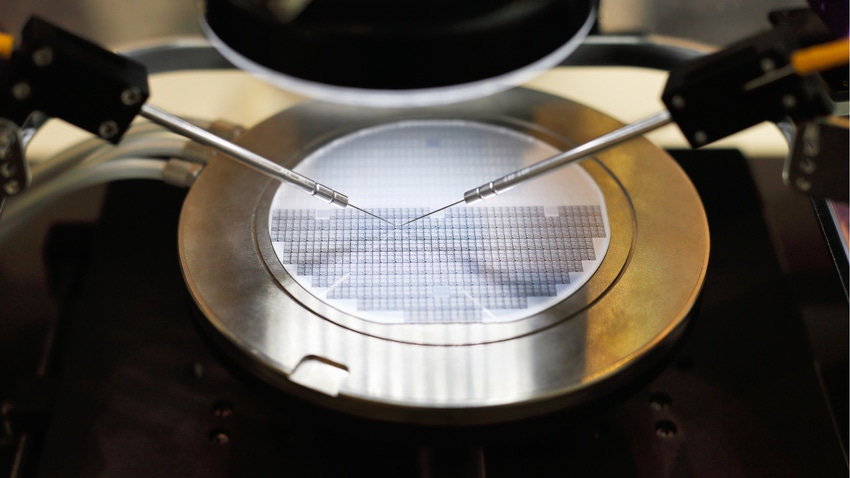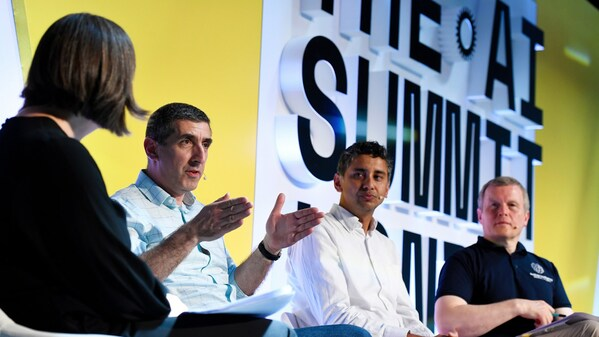OpenAI or Nvidia: Who Will Lead the Future of AI Chips?
Sam Altman wants to shake up the AI chip market. Nvidia CEO Jensen Huang begs to differ

At a Glance
- OpenAI CEO Sam Altman reportedly is seeking to raise as much as $7 trillion to build AI chipmaking plants.
- He is in talks with investors from the UAE, SoftBank and others. Chip foundry giant TSMC would build and run them.
- Nvidia CEO Jensen Huang thinks the $7 trillion figure is too high since computers will become faster and more efficient.
OpenAI CEO Sam Altman reportedly is seeking to raise trillions of dollars to increase the world’s capacity to build AI chips.
The Wall Street Journal’s sources claim that Altman is looking to raise as much as $5 trillion and $7 trillion. He is in talks with the U.A.E government, SoftBank and other investors. After Altman raises the funds, the goal was to have chip foundry giant Taiwan Semiconductor Manufacturing Co. build and run them.
The OpenAI CEO tweeted recently that the world “needs more AI infrastructure, fab capacity, energy, data centers, etc. than people are currently planning to build.”
“Building massive scale AI infrastructure, and a resilient supply chain, is crucial to economic competitiveness,” Altman wrote.
But Nvidia CEO Jensen Huang cast doubt over the amount Altman believes he would need to raise to build AI chipmaking plants.
“You can’t assume just that you will buy more computers. You have to also assume that the computers are going to become faster and therefore the total amount that you need is not as much,” Bloomberg reported Huang as saying at the World Government Summit in Dubai.
However, Huang projected that the number of data centers will double over the next four to five years. He pegged the value of the current base of data centers at $1 trillion and sees it rising to $2 trillion to power AI globally.
Altman’s project would create a rival to Nvidia, whose advanced AI chips are in such demand that it created a bottleneck.
OpenAI, like most of the AI industry, relies on chips from Nvidia as one of its key suppliers. However, OpenAI is looking at building its own chips. So is strategic partner Microsoft with its Athena project and Meta is doing the same, building custom chips for running its own AI models like Llama 2.
But Huang argued that experienced chipmakers are creating more cost-efficient hardware that would make in-house efforts redundant.
Meanwhile, Altman himself personally invested in Rain AI, a Francisco startup building chips designed to replicate the way the human brain processes information. OpenAI penned a $51 million deal with the startup last December to supply it with hardware.
About the Author(s)
You May Also Like



.jpg?width=700&auto=webp&quality=80&disable=upscale)
.jpg?width=700&auto=webp&quality=80&disable=upscale)
.jpg?width=300&auto=webp&quality=80&disable=upscale)
.jpg?width=300&auto=webp&quality=80&disable=upscale)
.jpg?width=300&auto=webp&quality=80&disable=upscale)
.jpg?width=300&auto=webp&quality=80&disable=upscale)
.jpg?width=300&auto=webp&quality=80&disable=upscale)